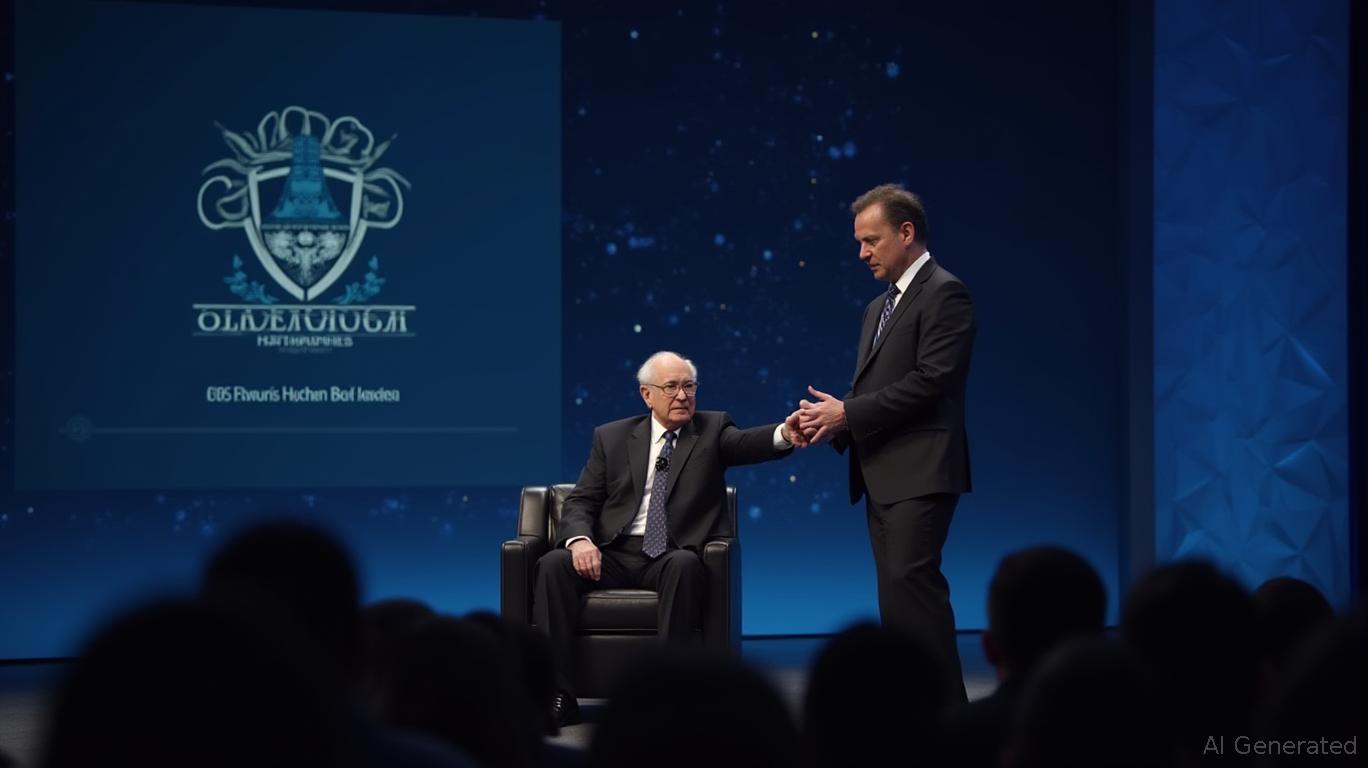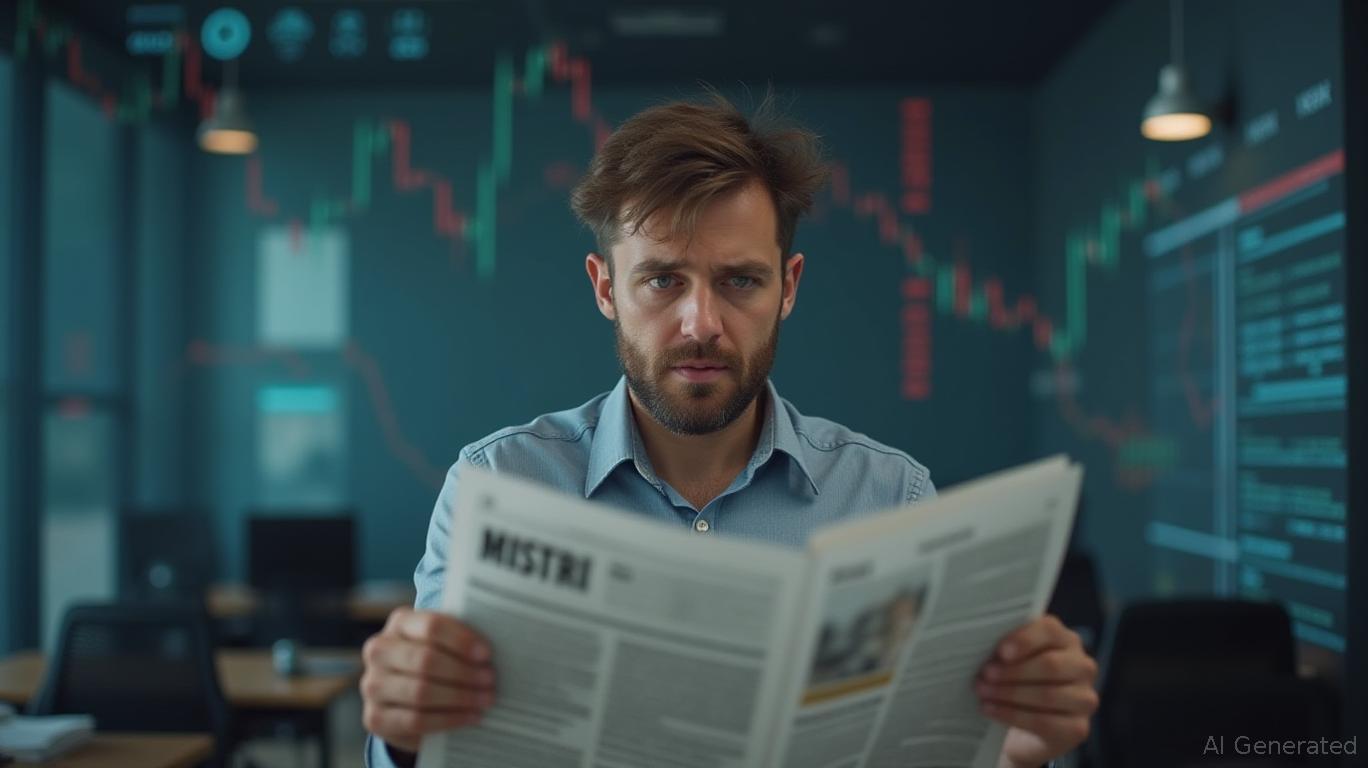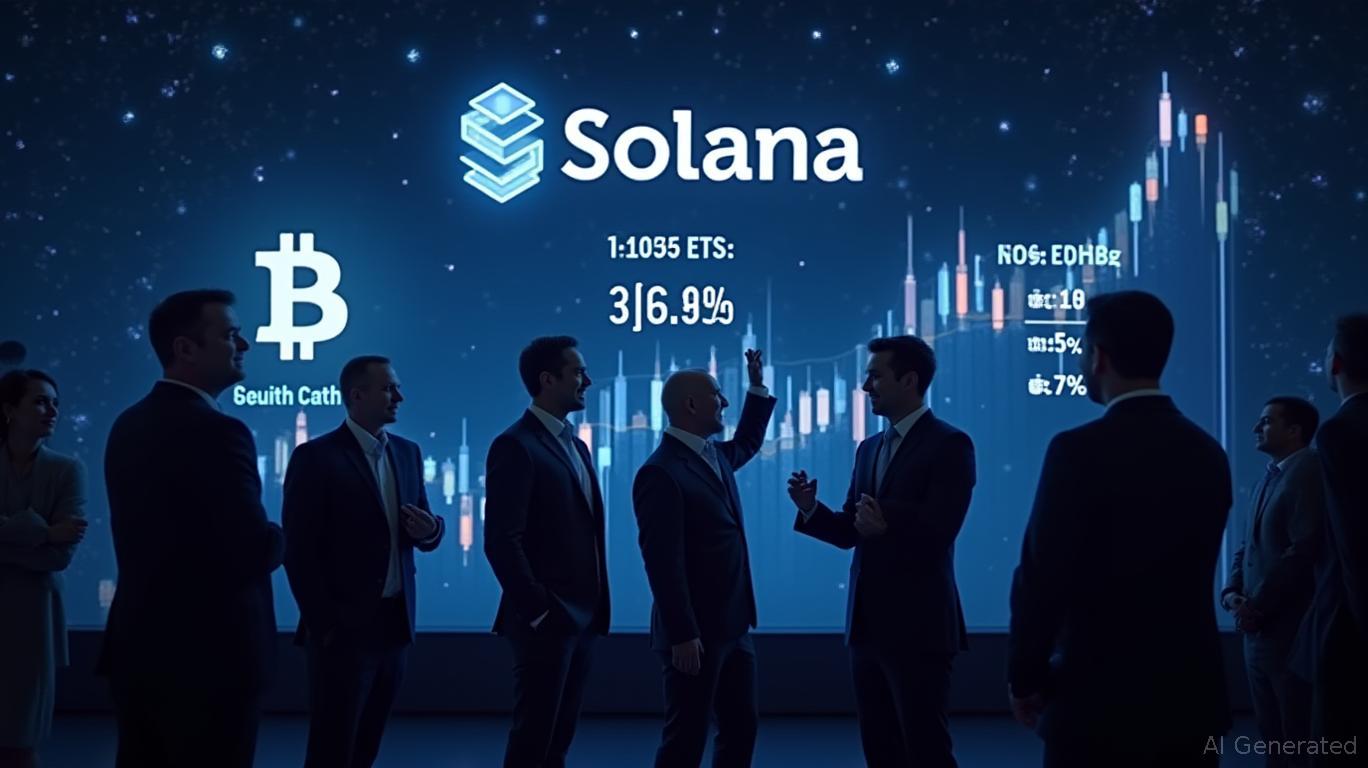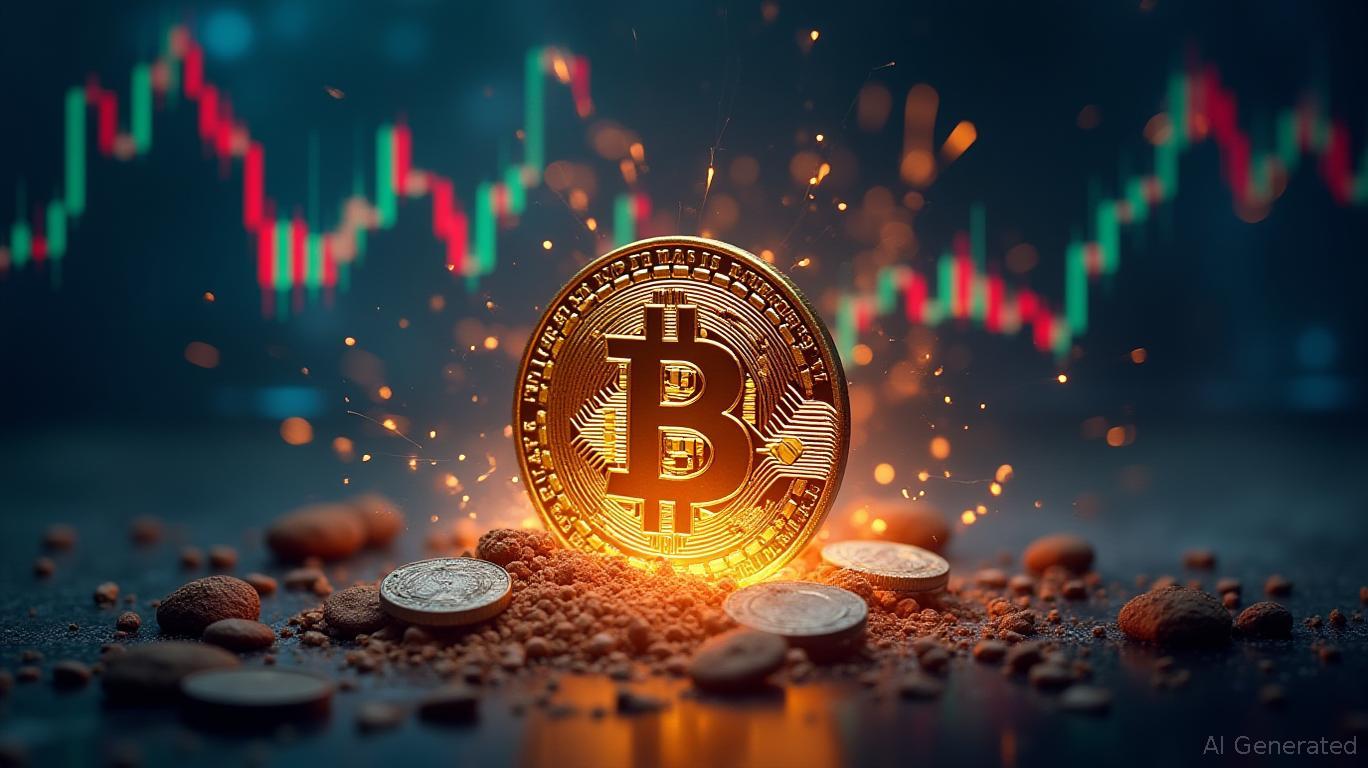Berkshire’s Cash Reserves Increase While Shares Decline: Could the Incoming CEO Initiate a New Strategy?
- Berkshire Hathaway has net sold stocks for three years, holding $381.67B cash as Buffett steps down in 2025. - Q3 operating profit rose 34% to $13.49B, driven by insurance gains, but stock lagged S&P 500 by 12%. - Greg Abel's leadership transition faces pressure to diversify capital use amid $381B cash hoard and no buybacks since 2020. - Buffett's "cash-equivalent" philosophy contrasts with market demands for action as the "Buffett premium" erodes.
Renowned investor Warren Buffett has now spent three straight years selling more stocks than buying at Berkshire Hathaway, highlighting a significant change in the conglomerate’s strategy as it prepares for a leadership transition. As of September 30, 2025, Berkshire’s cash holdings soared to an unprecedented $381.67 billion, according to
Berkshire’s third-quarter earnings, announced on November 1, showed a 34% increase in operating profit from the previous year, reaching $13.49 billion—a result Seeking Alpha attributed to strong insurance underwriting. Profits from this segment jumped to $2.37 billion, thanks to fewer major losses and positive claim trends. Nevertheless, Berkshire continued to sell more stocks than it bought, with net sales of $6 billion in Q3, marking 12 straight quarters of net selling, as Morningstar also noted. Analysts say Buffett’s focus on liquidity reflects caution in volatile markets, though some critics, according to Morningstar , believe it signals a shortage of appealing investments.

Berkshire has not repurchased any shares for five consecutive quarters, intensifying debate over its approach to capital management. Historically, Buffett has preferred investing in high-quality businesses, but the current cash reserve—now $381 billion, up from $344 billion in the previous quarter, as Morningstar observed—suggests a more cautious, wait-and-see attitude. This has drawn attention as Berkshire’s stock has only risen 5% this year, compared to a 17% gain for the S&P 500, a gap MarketWatch highlighted. Edward Jones analyst James Shanahan remarked that Buffett’s core belief remains: “We will never prefer ownership of cash-equivalent assets over the ownership of good businesses,” even as cash accumulates, Morningstar added.
The upcoming leadership change is a major factor. Abel, the incoming CEO, has indicated he will maintain Berkshire’s current operating model but could face calls to diversify how capital is used. The company has already agreed to spend $9.7 billion to buy Occidental Petroleum’s OxyChem unit, according to Financial Modeling Prep—a deal Buffett called a template for investing in expensive markets, as Seeking Alpha reported. With Abel set to write Berkshire’s annual letter for the first time in 2026, Seeking Alpha noted that investors will be watching for any strategic shifts. “Greg doesn’t know anything about this that I’m telling you right now,” Buffett joked during his May announcement, as USA Today recounted, hinting at the uncertainty ahead.
Berkshire’s financial strength remains remarkable. Its cash reserves now surpass the market value of most Fortune 500 firms, giving the company flexibility for options like dividends—which haven’t been paid since 1967—acquisitions, or buybacks. Still, with Abel’s active management style and Buffett’s ongoing role as chairman, the future direction is not yet clear. “The final word will be what Greg said,” Buffett stressed, according to USA Today , though his continued presence may help ensure stability.
As Berkshire moves through this period of change, attention will turn to how Abel manages the balance between honoring Buffett’s legacy and pursuing new opportunities. For now, the record cash levels and continued net stock sales point to a company choosing patience over immediate action—a strategy that has benefited Berkshire in the past but could challenge investor faith as the “Buffett premium” diminishes, MarketWatch warned.
Disclaimer: The content of this article solely reflects the author's opinion and does not represent the platform in any capacity. This article is not intended to serve as a reference for making investment decisions.
You may also like
Bitcoin News Update: Analyst Highlights How MSTR's Convertible Bonds Prevent Forced Bitcoin Sales
- MSTR's convertible debt structure allows debt repayment via cash, stock, or both, avoiding Bitcoin sales during market downturns. - The company raised €350M through a 10% dividend-bearing euro-denominated preferred stock offering to fund Bitcoin purchases. - Q3 results showed $3.9B operating income from Bitcoin gains, driving a 7.6% stock surge to $273.68 post-earnings. - Risks persist if Bitcoin fails to rally in 2028, potentially forcing partial liquidation amid $1.01B 2027 debt obligations. - MSTR hol

Solana News Today: Solana ETFs Surpass Bitcoin as Staking Returns Attract Institutional Investments
- U.S. spot Solana ETFs (BSOL/GSOL) attracted $199M in 4 days, outperforming Bitcoin/Ethereum ETF outflows. - 7% staking yields drive institutional inflows as investors rotate capital from major crypto assets. - Despite ETF success, SOL price fell below key support levels, raising concerns about $120 price floor. - Strategic staking and treasury purchases boosted Solana's institutional appeal, with $397M in staked assets. - Market remains cautious as ETF competition intensifies, with Bitwise's BSOL outpaci

Bitcoin News Today: Bitcoin’s Fourth Quarter Surge: Impact of Trade Disputes, Stronger Dollar, and Evolving Global Economic Strategies
- Bitcoin fell nearly 15% in October 2024, its worst quarterly start since 2022, driven by U.S.-China trade tensions, dollar strength, and macroeconomic caution. - A 100% U.S. tariff on Chinese imports and Fed rate-cut delays exacerbated selloffs, triggering $1.3B in liquidations during a flash crash below $103,000. - Key support levels at $107,000 and $101,150 face retests as traders warn of further declines, with market cap dropping below $3.6T amid fragile liquidity. - Wintermute denied Binance lawsuit

BNB News Today: AI and Blockchain Unite to Transform the Industry Through Decentralized Innovations
- ChainOpera, an AI-powered blockchain project, raised $40M+ in funding to expand decentralized infrastructure, highlighting growing investor confidence in AI-blockchain convergence. - FedEx partners with ServiceNow to implement AI-driven supply chain analytics, aiming to boost operational efficiency through real-time disruption prediction and automation. - BNB Chain emerges as an AI innovation hub with Avalon Labs' AI-MaaS marketplace and AEON's autonomous payment SDK, enabling decentralized AI model depl
